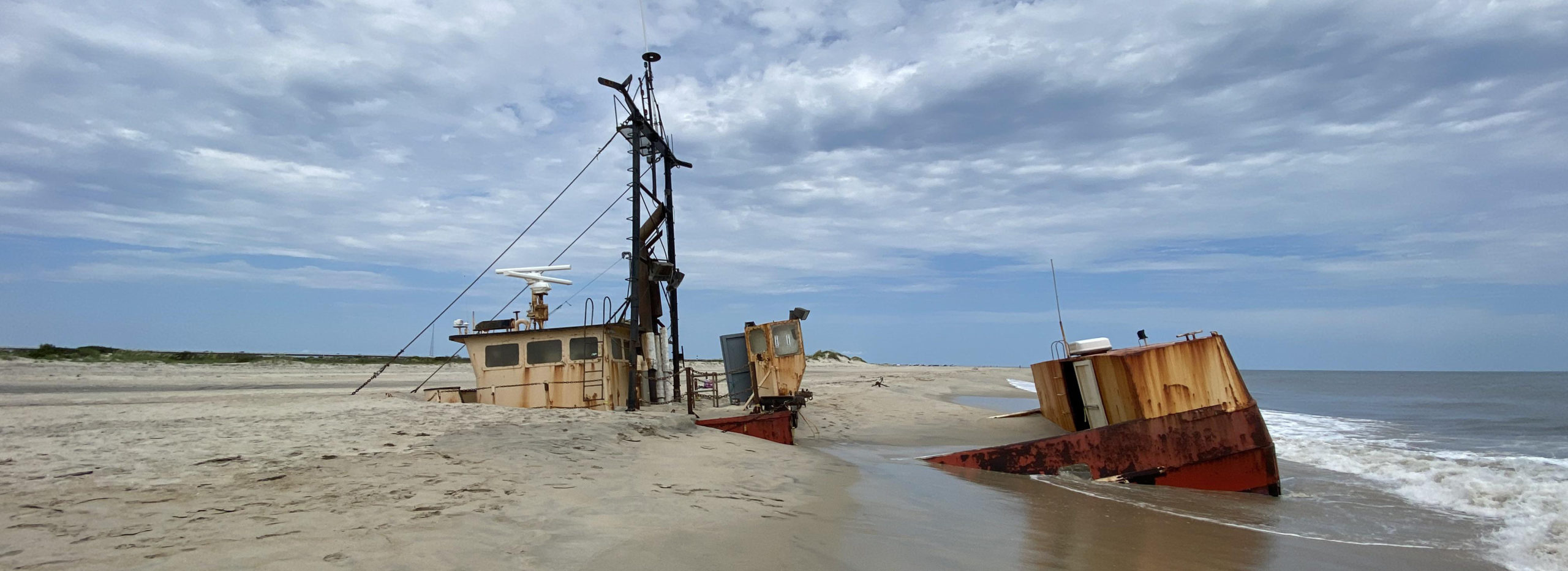
Plague Journal, I Do Not Know Much But I Think
THE DRY SALVAGES
(No. 3 of ‘Four Quartets’)
I
I do not know much about gods; but I think that the river
Is a strong brown god—sullen, untamed and intractable,
Patient to some degree, at first recognised as a frontier;
Useful, untrustworthy, as a conveyor of commerce;
Then only a problem confronting the builder of bridges.
The problem once solved, the brown god is almost forgotten
By the dwellers in cities—ever, however, implacable.
Keeping his seasons and rages, destroyer, reminder
Of what men choose to forget. Unhonoured, unpropitiated
By worshipers of the machine, but waiting, watching and waiting.
His rhythm was present in the nursery bedroom,
In the rank ailanthus of the April dooryard,
In the smell of grapes on the autumn table,
And the evening circle in the winter gaslight.
The river is within us, the sea is all about us;
The sea is the land’s edge also, the granite
Into which it reaches, the beaches where it tosses
Its hints of earlier and other creation:
The starfish, the horseshoe crab, the whale’s backbone;
The pools where it offers to our curiosity
The more delicate algae and the sea anemone.
It tosses up our losses, the torn seine,
The shattered lobsterpot, the broken oar
And the gear of foreign dead men. The sea has many voices,
Many gods and many voices.
The salt is on the briar rose,
The fog is in the fir trees.
The sea howl
And the sea yelp, are different voices
Often together heard: the whine in the rigging,
The menace and caress of wave that breaks on water,
The distant rote in the granite teeth,
And the wailing warning from the approaching headland
Are all sea voices, and the heaving groaner
Rounded homewards, and the seagull:
And under the oppression of the silent fog
The tolling bell
Measures time not our time, rung by the unhurried
Ground swell, a time
Older than the time of chronometers, older
Than time counted by anxious worried women
Lying awake, calculating the future,
Trying to unweave, unwind, unravel
And piece together the past and the future,
Between midnight and dawn, when the past is all deception,
The future futureless, before the morning watch
When time stops and time is never ending;
And the ground swell, that is and was from the beginning,
Clangs
The bell.
I have been drawn to T. S. Eliot’s Four Quartet Poems for quite some time. I own a dog eared paperback copy which sometimes is carried for weeks in my laptop bag. This first stanza of poem no. 3 compares the human tendency to distraction, and to the mindset of calculation with the rhythm and power of the river, and of the sea. I am privileged to live within proximity to the Fox River. Also, in a matter of weeks I anticipate spending a few days on the outer banks of North Carolina, the barrier reef that serves as gateway to the Atlantic ocean.
For the most part we have tamed the rivers in this country, by virtue of our engineering prowess, and the resources we have dedicated to construction. A computer search indicates there are 2,216 miles of flood wall levees constricting the flow of the Mississippi River. Another mighty river, the Colorado is running dry to state the matter bluntly. There’s concern about having sufficient water in Lake Mead, to spin the power turbines, and to distribute irrigation water to adjacent states. Climate warming is something that our planners did not anticipate, the whipsaw of floods and drought. What engineering, what application of budget and manpower could absorb the rage of nature’s cause and effect?
It is “as if” the river, be it the Mississippi, or the Colorado, or the Fox were a strong brown god, which we choose to forget. Manifestly we are worshipers of our machines. (A few minutes viewing the video of Sunday afternoon football played before thousands present within one of our enormous pro-football stadiums is positive proof of the matter) Football, a seasonal ritual for millions…
I am looking forward to walking the beach at sunrise while staying at Nags Head on the outer banks, — to hear and feel the menace and caress of the waves breaking on the beach.
I want to be reminded that I do not know much. I know that I think. I am merely human, — I cannot help but calculate the future, attempt to unweave, to unravel the pathways of cause and effect, to stop time.